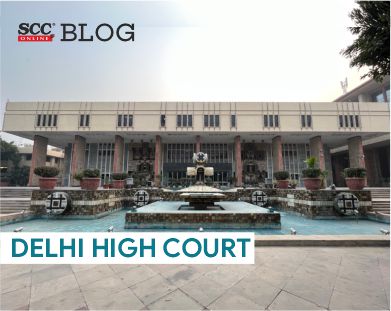Delhi High Court: A Single Judge Bench of Dinesh Kumar Sharma, J. held that interim bail should not be granted only at the stage when the person was breathing last or was in the position that he may not survive. Further, the Court directed the authorities to avoid giving long dates to prisoners for their medical check-up and instead act with promptness to ensure that the prisoners were examined early.
Background
In the present case, the petitioner filed an application for the grant of bail on the ground of his medical condition. It was stated that the petitioner was 59 years old and had various ailments relating to spine and back for which the petitioner was under constant medical supervision. Further, it was stated that on account of his stay in jail, his ailments had worsened as he had not been able to get any proper treatment.
Submissions on behalf of the Petitioner
The counsel for the petitioner submitted that the petitioner was in judicial custody since March 2022 and apart from general ailments, the petitioner was suffering from serious lumber pain and was diagnosed with Prolapsed Intervertebral Disk (PIVD), Lumbar Cabal Stenosis (LCS) L-3, L-4, L-5 and L5-S1. It was further submitted that due to herniated discs and degenerative disease, the petitioner had nerve compression resulting in immense pain and stiffness of limbs. Moreover, even before the petitioner was arrested, he remained hospitalized at Bombay Hospital in September 2021 and had been under constant medical supervision.
The counsel submitted that it was clear that due to lack of treatment, the petitioner’s strength and sensory powers had decreased. Further, it was stated that the petitioner had been waiting for neurosurgery review since July 2022 but the same had not been conducted. Therefore, it was submitted that it was in the best interest of the health of the petitioner that he may be released on interim bail for a sufficient time to get neurology medical examinations conducted.
Submissions on behalf of the Respondent
Counsel for the respondent submitted that the petitioner was not suffering from any serious ailments which required any immediate hospitalization or any further intervention. Further, it was stated that the petitioner’s condition was found stable as per the latest medical report. Therefore, it was submitted that in view of strict mandatory twin conditions under Section 45 of Prevention of Money Laundering Act, 2002 (PMLA), accused should not be released on interim bail unless the Court was satisfied that there were reasonable grounds for believing that he was not guilty of an offence of money laundering and that he was not likely to commit any offence while on bail.
Analysis, Law, and Decision
The Court noted that the report stated that the general condition of the petitioner was stable, and all the medicines were being provided to him, but it was also true that the allegations against the petitioner were serious in nature and therefore, the allegations against the petitioner would be examined considering the twin conditions as provided under Section 45 of PMLA.
The Court opined that even though the offence was serious, the health of the human being was paramount. The Court stated that “the health concern of a person in custody had to be taken care of by the State and keenly watched by the judiciary. Every person had a right to get himself adequately and effectively medically treated. Article 21 of the Constitution not only gives a fundamental right to live but the right to live with dignity. The right to live a healthy life is also one of the facets of fundamental rights granted by the Constitution”.
The Court opined that a person in custody suffering from a serious ailment should be given an opportunity for adequate and effective medical treatment and the discretion for grant of interim bail on medical ground should not be exercised only at a stage when the person was breathing last or was in the position that he may not survive.
The Court granted interim bail to the petitioner till 10-2-2023 on medical grounds, so that the petitioner could get his neurology examination conducted. Further, the Court directed the authorities to avoid giving long dates to prisoners for their medical check-up and instead act with promptness to ensure that they were examined early.
The matter would next be listed on 10-2-2023.
[Vijay Agrawal v. Directorate of Enforcement, 2022 SCC OnLine Del 4494, decided on 13-12-2022]
Advocates who appeared in this case :
For the Petitioner: Senior Advocate Siddharth Luthra;
Senior Advocate Siddharth Aggarwal;
Advocate Arjun Dewan;
Advocate Shahryar Khan;
Advocate Akash Arora;
Advocate Arshiya Ghose;
Advocate Subhangi Jain;
Advocate Aditya Raju;
Advocate Sheezan Hashmi;
For the Respondent: Special Counsel for ED Zoheb Hossain;
ED Vivek Gurnani;
ED Siddharth Kaushik;
ED Rajendra Singh.







